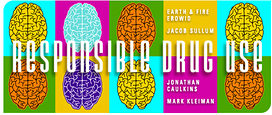Jonathan is right that, according to the government’s survey data, “current” (i.e., past-month) use of illegal drugs is relatively rare. Still, something done by one in 12 Americans (about 20 million people)—or one in seven (36 million), if we look at past-year use—is a significant phenomenon that involves many otherwise law-abiding people. (We should also acknowledge the possibility that self-reports underestimate the true prevalence of illegal drug use.) And while past-month or past-year use is not normative, lifetime use is, at least for Americans born after World War II, most of who have tried a prohibited intoxicant, typically marijuana, at some point. That fact ought to change the legal approach to marijuana at least. How many former pot smokers—whose ranks include political figures such as Bill Clinton, Al Gore, George W. Bush (probably), Clarence Thomas, Newt Gingrich, Barack Obama, and Sarah Palin—think they would have been better off, or more justly treated, if they had been arrested?
Yet according to FBI figures released this week, about 873,000 people were arrested in the United States on marijuana charges last year, the vast majority for simple possession. That’s yet another record-breaking total, and since 1991 the number of marijuana arrests has tripled (without a corresponding increase in marijuana use). Pot smokers who are arrested do not typically spend much time in jail. But they still bear substantial costs, including not just public humiliation, legal expenses, and fines but a variety of ancillary penalties that may include employment difficulties, loss of driver’s licenses, and suspension or revocation of professional licenses. I think this is an area where all of us agree a less punitive approach is appropriate.

